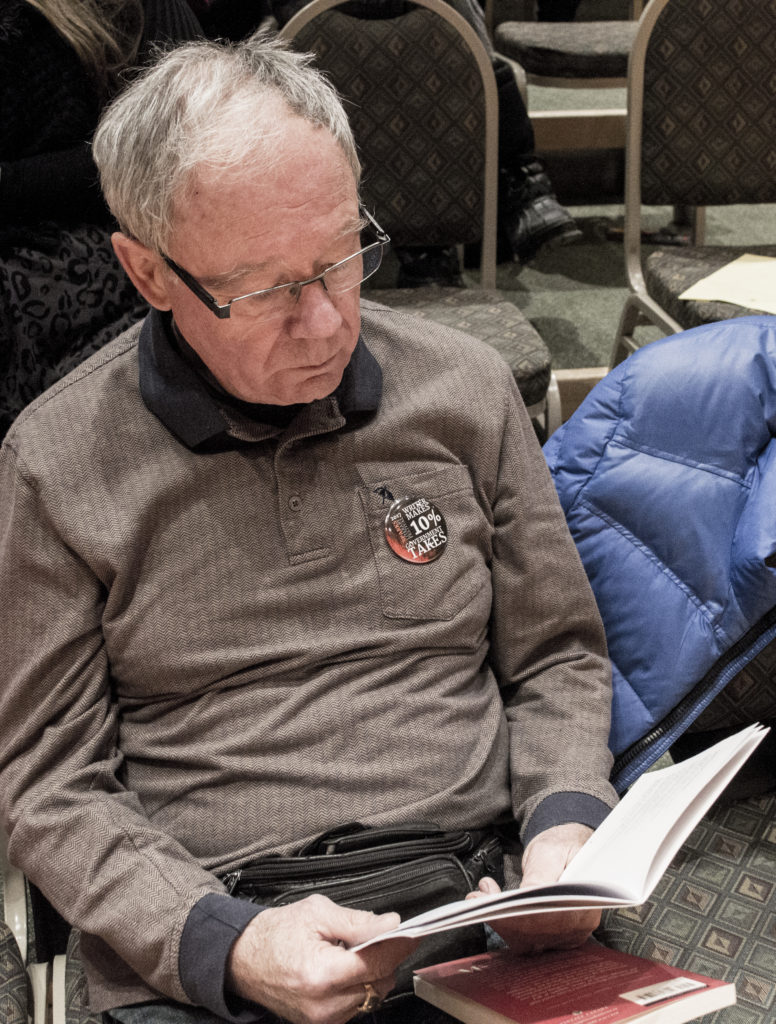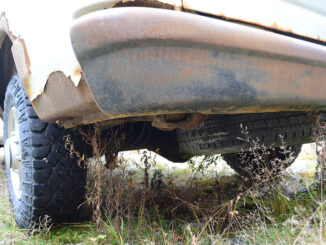While supporting local literacy festival, book lovers protest new tax.
Anthony Sparrow
Kicker

Over 100 people defied bitterly cold weather and a controversial book tax last Sunday at Memorial University’s SPARKS Literary Festival.
Organized by the university’s English department, SPARKS was a day long celebration of words and language featuring readings, discussions and book sales.
Local writers Michael Crummey, Russell Wangersky, Edward Riche, Andreae Callanan, Eva Crocker and Bridget Canning were among those who read a selection of their work before answering questions from the crowd.
Professor and poet Mary Dalton founded SPARKS in 2009 because St. John’s didn’t have its own literary festival.
For Dalton, the provincial book tax is an assault on those who love the printed word and the arts.
“It’s a terrible thing; it’s ill-conceived,” Dalton said. “Threatening to close 54 libraries, taxing books, cutting the funding at the Rooms – these are all very short-sighted measures.”
According to Jennifer Lokash, a speaker at the event, SPARKS was started as a way to spread some light and warmth in times of wintry darkness.
Wearing a “Literacy isn’t a luxury” button, Lokash directly criticized the provincial government for introducing a 10 per cent tax on books.
“There will be fewer of our stories being put out into the world.”
While devoted to literature, SPARKS stayed politically charged throughout. Austerity, indigenous rights, resettlement and Donald Trump’s presidential election were recurring themes. The book tax, however, remained the most contentious issue.
Participants were encouraged to wear anti-tax buttons, sign a petition and take part in a social media protest directed at the provincial government.
Long-time SPARKS supporter Stan Dragland was one audience member who praised the festival’s political element and who purchased new books despite the added cost.
An acclaimed author in his own right, Dragland expressed his concerns about the book tax.
“I think it’s a terrible, regressive move,” said Dragland. “I’m not even sure it’s going to work because people buy fewer books and they are going to pay less tax. Economically, I’m not sure it makes any sense at all.”
Michael Crummey is one of Newfoundland and Labrador’s best known novelists and poets. He said he’s afraid the book tax will reduce opportunities for local writers if bookstores and publishers are forced to close.
“There will be fewer of our stories being put out into the world,” Crummey said.
He added that the levy on books, like proposed library closures, will have lasting effects on the province, such as its low literacy rates, that will far outweigh any financial gains.
“Long term, those will have a real and very negative impact on our cultural life. I feel like they are incredibly regressive and counterproductive moves,” he said.
Finance minister Cathy Bennett could not be reached for comment.



